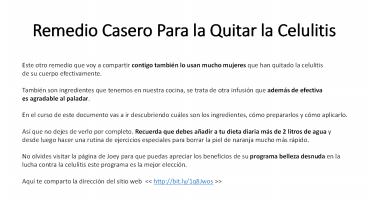Religion In Shakespeare's Time - PowerPoint PPT Presentation
1 / 5
Title:
Religion In Shakespeare's Time
Description:
While little direct evidence exists, circumstantial evidence suggests that ... A Quaker silence is religion, so is Verdi's Requiem. ... – PowerPoint PPT presentation
Number of Views:192
Avg rating:3.0/5.0
Title: Religion In Shakespeare's Time
1
Religion In Shakespeare's Time
2
Over the years, there have been a number of
speculations about the religious beliefs of
William Shakespeare. While little direct evidence
exists, circumstantial evidence suggests that
Shakespeare's family had Catholic sympathies and
that he himself was Catholic, though there is
disagreement over whether he in fact was. In
16th-century England, Catholics practiced their
religion in secret, hoping they would not be
discovered by the Protestant monarchy. At the
same time, William Shakespeare was writing drama
and poetry that would mark him, in the minds of
some scholars, as a closet Catholic cleverly
protesting the English government's religious
intolerance.
3
what about "religion"? The word is used to
designate things as different from one another as
Satanism and satori, as fetish-worship and the
enlightenment of a Buddha, as the vast
politico-theologic of financial organizations
known as churches and the intensely private
visions of an ecstatic. A Quaker silence is
religion, so is Verdi's Requiem. A sense of the
blessed All-Rightness of the Universe is a
religious experience and so is the sick soul's
sense of self-loathing, of despair, of sin, in a
world that is the scene of perpetual perishing
and inevitable death.
4
Honest faith in God, angels and saints implied a
corresponding faith in the Devil, evil spirits
and the witches, sorcerers and magicians who
collaborated with them. Shakespeare lived in an
age when preoccupation with the foul Fiend and
his human allies was more than ordinarily
intense. Vivid descriptions of witchcraft and
rules for its repression had been set forth, in
the last decade of the fifteenth century, by two
learned Dominicans, Father Kramer and Father
Sprenger, whose Malleus Maleficarum or Hammer of
Witches, was to remain a standard textbook for
nearly 200 years. During the sixteenth and
seventeenth centuries, in Protestant and Catholic
countries alike, incredible numbers of witches
and sorcerers were arrested, tortured, hanged, or
burned alive. Like the overwhelming majority of
his contemporaries (including his sovereign lord,
King James I, who was the author of a learned
work on witchcraft), Shakespeare certainly
believed in sorcery and the possibility of
collaboration between human hearts and devils.
But this faith was tempered by common sense and
dispassionate observation. Thus Glendower claims
that he can call spirits from "the vasty deep."
"Why, so can I," says Hotspur "or so can any man
But will they come when you do call for them?"
The vasty deep is alive with spirits, and it is
possible to establish communications with
them-possible, but, as a matter of observable
fact, very difficult. Magic works, but is
notoriously unreliable even in the hands of those
who have contracted their souls away to the Devil.
5
Religion is not merely a complex of
behavior-patterns and organizations. It is also a
set of beliefs. What were Shakespeare's beliefs?
The question is not an easy one to answer for in
the first place Shakespeare was a dramatist who
made his characters express opinions which were
appropriate to them, but which may not have been
those of the poet. And anyhow did he himself have
the same beliefs, without alteration or change or
emphasis, throughout his life?































